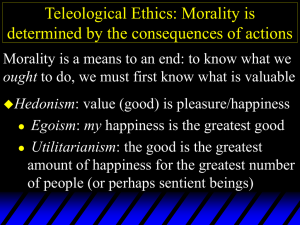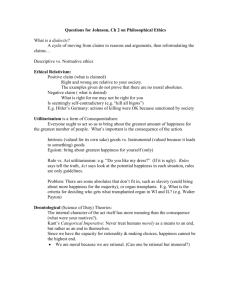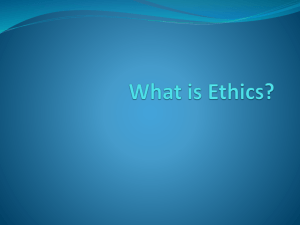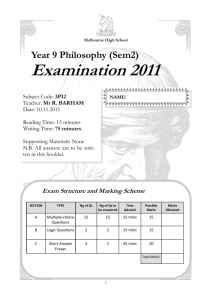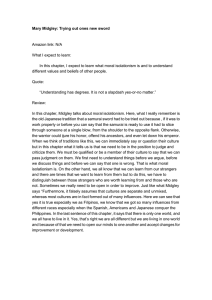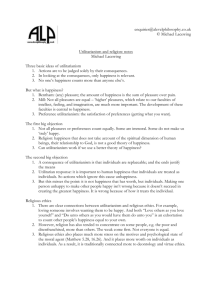ACT vs RULE Utilitarianism
advertisement
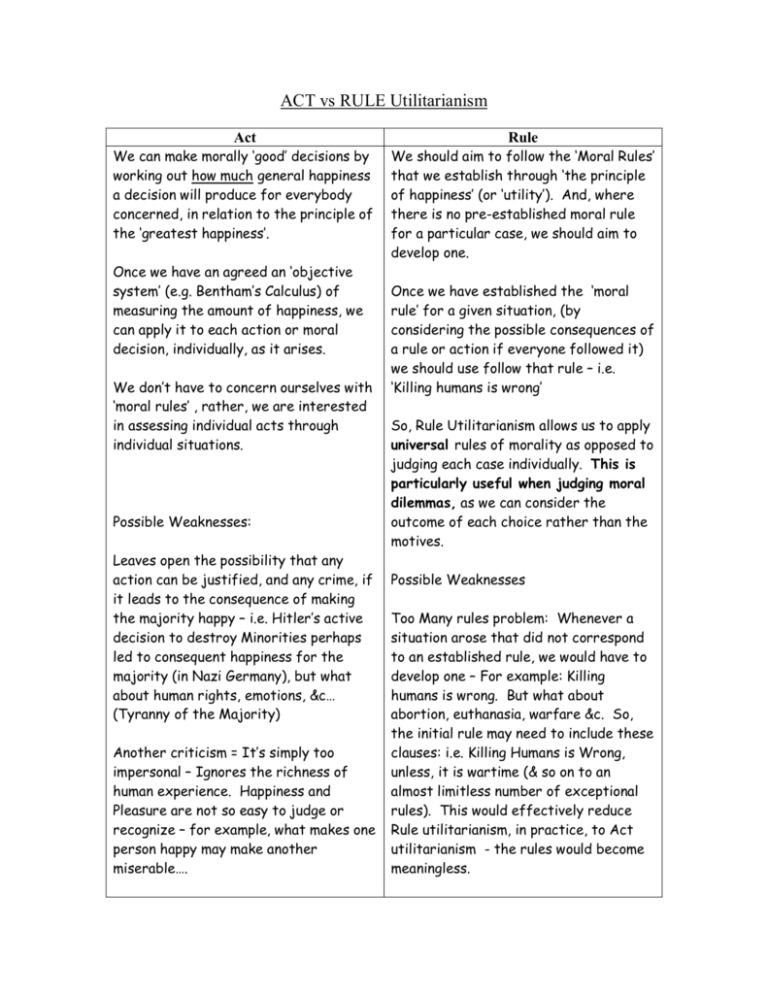
ACT vs RULE Utilitarianism Act Rule We can make morally ‘good‛ decisions by working out how much general happiness a decision will produce for everybody concerned, in relation to the principle of the ‘greatest happiness‛. We should aim to follow the ‘Moral Rules‛ that we establish through ‘the principle of happiness‛ (or ‘utility‛). And, where there is no pre-established moral rule for a particular case, we should aim to develop one. Once we have an agreed an ‘objective system‛ (e.g. Bentham‛s Calculus) of measuring the amount of happiness, we can apply it to each action or moral decision, individually, as it arises. We don‛t have to concern ourselves with ‘moral rules‛ , rather, we are interested in assessing individual acts through individual situations. Possible Weaknesses: Leaves open the possibility that any action can be justified, and any crime, if it leads to the consequence of making the majority happy – i.e. Hitler‛s active decision to destroy Minorities perhaps led to consequent happiness for the majority (in Nazi Germany), but what about human rights, emotions, &c… (Tyranny of the Majority) Another criticism = It‛s simply too impersonal – Ignores the richness of human experience. Happiness and Pleasure are not so easy to judge or recognize – for example, what makes one person happy may make another miserable…. Once we have established the ‘moral rule‛ for a given situation, (by considering the possible consequences of a rule or action if everyone followed it) we should use follow that rule – i.e. ‘Killing humans is wrong‛ So, Rule Utilitarianism allows us to apply universal rules of morality as opposed to judging each case individually. This is particularly useful when judging moral dilemmas, as we can consider the outcome of each choice rather than the motives. Possible Weaknesses Too Many rules problem: Whenever a situation arose that did not correspond to an established rule, we would have to develop one – For example: Killing humans is wrong. But what about abortion, euthanasia, warfare &c. So, the initial rule may need to include these clauses: i.e. Killing Humans is Wrong, unless, it is wartime (& so on to an almost limitless number of exceptional rules). This would effectively reduce Rule utilitarianism, in practice, to Act utilitarianism - the rules would become meaningless. Also seems unrealistic – Is it really possible that we have the time or knowledge to judge, evaluate, and compare alternatives, before reaching a decision for each rising situation? ( think of a society without fixed laws!) In short, many objectors to Act Utilitarianism claim that we simply cannot evaluate the happiness that will be produced through individual acts. Also seems unrealistic – Is it really possible that we have the time or knowledge to judge, evaluate, and compare alternative rules, before reaching a general rule? And how well would a general rule work when considering particular acts? ( think of a society with fixed laws!) This is similar to the above criticism. Many objectors to Rule Utilitarianism claim that we simply cannot evaluate the happiness that will be produced by assessing individual acts through general rules.
